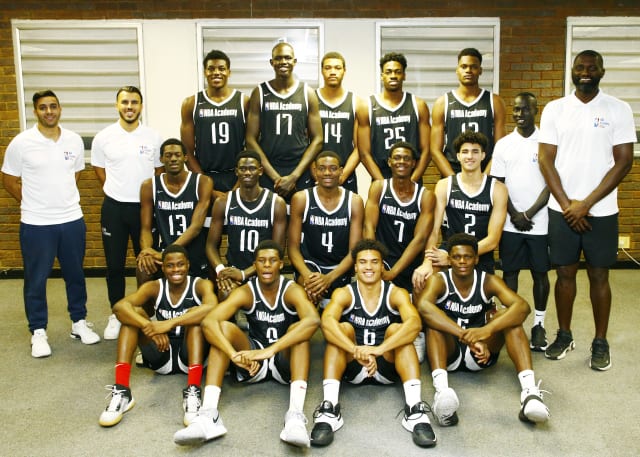Nesba shares how his regrets as a player are making him a better coach
Looking at Nesba's achievements, one would think the former guard would be content with his career.
CAIRO (Egypt) - Karim Nesba jokingly said he felt young when asked why he ended his playing career in his mid-thirties.
Considering he is still at an age where he can lace up and compete, the 37-year-old felt he needed to give back to the game in a different way.
The Moroccan coach, who recently took over the coaching reins at Ugandan club City Oilers, says during the Covid-19 lockdowns, he decided to trade his playing sneakers for the coach's clipboard.
"I am only young in appearance. I'm sure some guys my age might look older. So, I will not complain about this part," said Nesba during an interview with FIBA.basketball. "I stopped playing basketball a couple of years ago, right in the middle of Covid, and since things were on hold, I felt it was the perfect time to stop playing and transition to this next phase of my career.
"I am really happy to have opportunities to be close to the game."

Nesba has worn the colours of his country and played club basketball there for Chabab Rif Al Hoceima, and he also had a stint at Auburn University - experiences many can dream of.
Looking at Nesba's achievements, one would think the former guard would be content with his career.
On the contrary, Nesba does have regrets about his playing career. He feels he could have done a bit more on the court.
"To be honest, I have many regrets, many, many regrets because there were instances where I could have made better decisions, especially at an early age," said Nesba. "I always felt I could do more. I have the opportunity now to do that by teaching and giving knowledge. That is one of the reasons to do this.
"Also, I have been exposed to European, American and African basketball. This mix allows me to offer a lot more. It allows me to teach young kids and also understand them better. I feel it gives the edge."

The former guard has featured for Morocco in the 2017 AfroBasket preliminary qualifiers, the 2019 AfroCan, and FIBA Basketball World Cup 2019 African Qualifiers. He says pulling on his country's vest is the biggest accomplishment as a player.
"Playing for my country is the biggest accomplishment of my career. It was an honour to play on the different stages. I played against players that I now coach when they played for Uganda," said Nesba. "Playing for your national team is a blessing. I did not get a lot of minutes on the court, but being a part of a group and representing your country is amazing.
"It gave me satisfaction... I learnt a lot about the international game."
Nesba, who learnt the ropes of his present craft at NBA grassroots programs in Morocco, has coached the NBA Academy and helped mould youngsters like Khaman Maluach (South Sudan), Ulrich Chomche (Cameroon) and Seifeldein Hendawy (Egypt) - players with promising careers ahead of them and played senior international basketball for their countries.

He says he is proud of playing a role in the young men's journeys.
"It means so much to me to have been part of their development. It also allowed me to get better as a coach. In the three years I was there (NBA Academy), it helped me get a lot of experience," said Nesba. "I'm sure we will watch these guys play against each other, maybe in the NBA. They have represented countries and they have shown a lot promise."
Nesba is presently the Oilers coach for the Basketball Africa League (BAL), and the Ugandans will this week (April 19-27) take on Nile Conference hosts Al Ahly (Egypt), Al Ahly Benghazi (Libya) and Bangui Sporting Club (Central African Republic.
The Oilers are heading to their second BAL appearance, and Nesba looks forward to coaching players he has competed against at the international level.
"I am very honoured to be part of this group. We have had many memories and battles. Now, we are going to do our best to represent this club, country and region of Africa," said Nesba. "The Nile Conference is going to be tough. We are playing the defending champions (Al Ahly) in their home country and will compete against other good teams.
"We will have to leave it all on the floor every time we compete," Nesba concluded.
FIBA